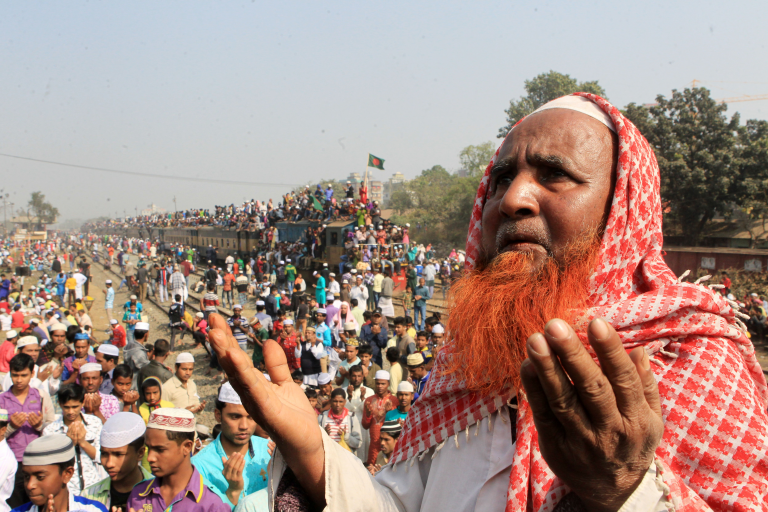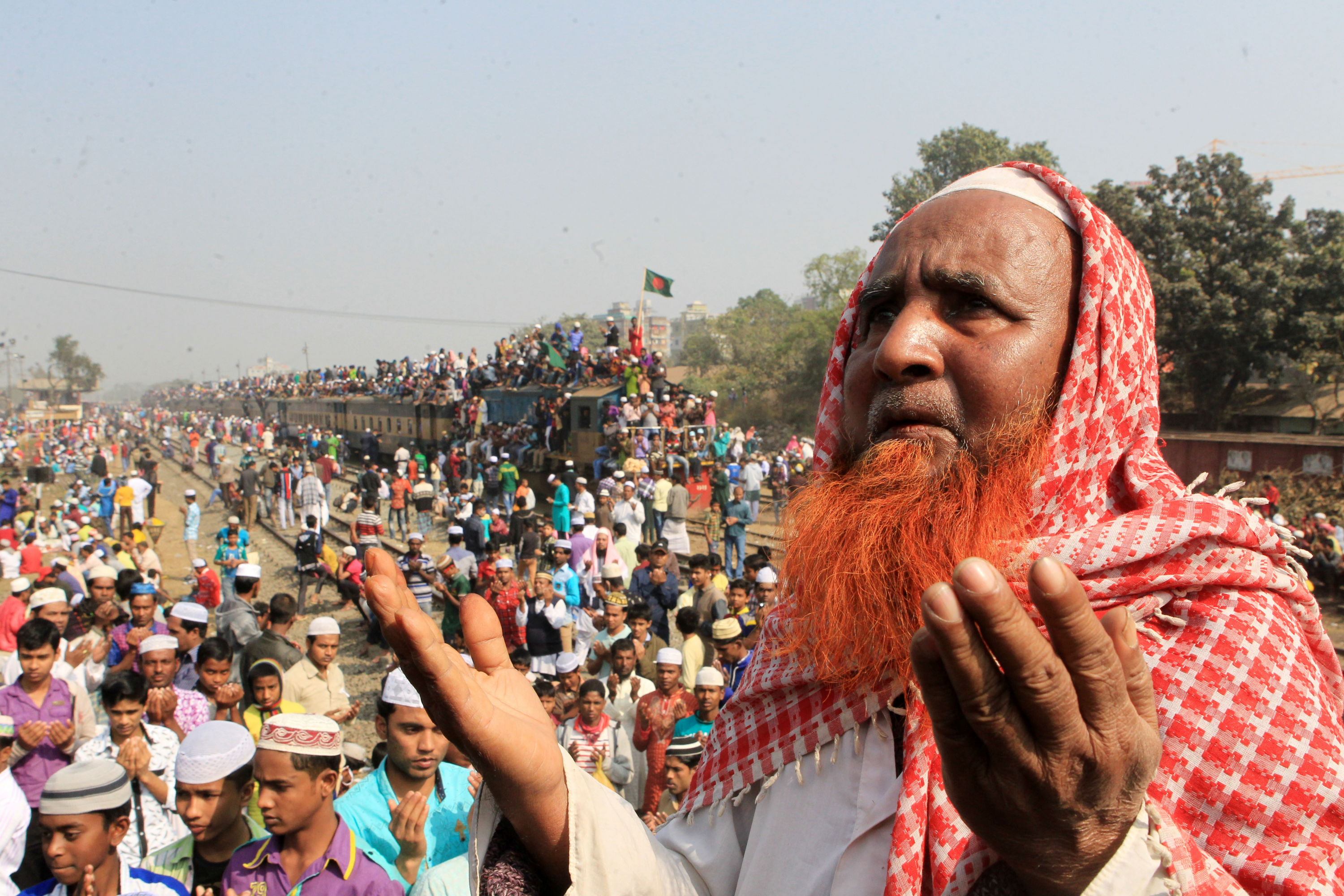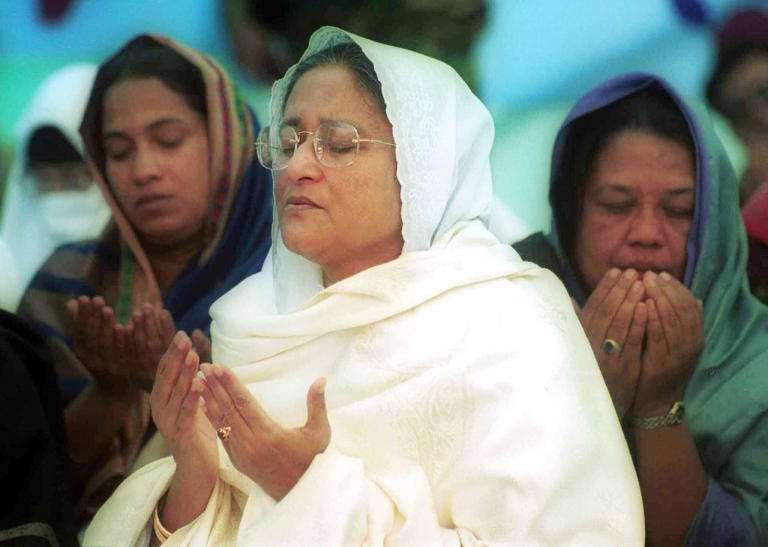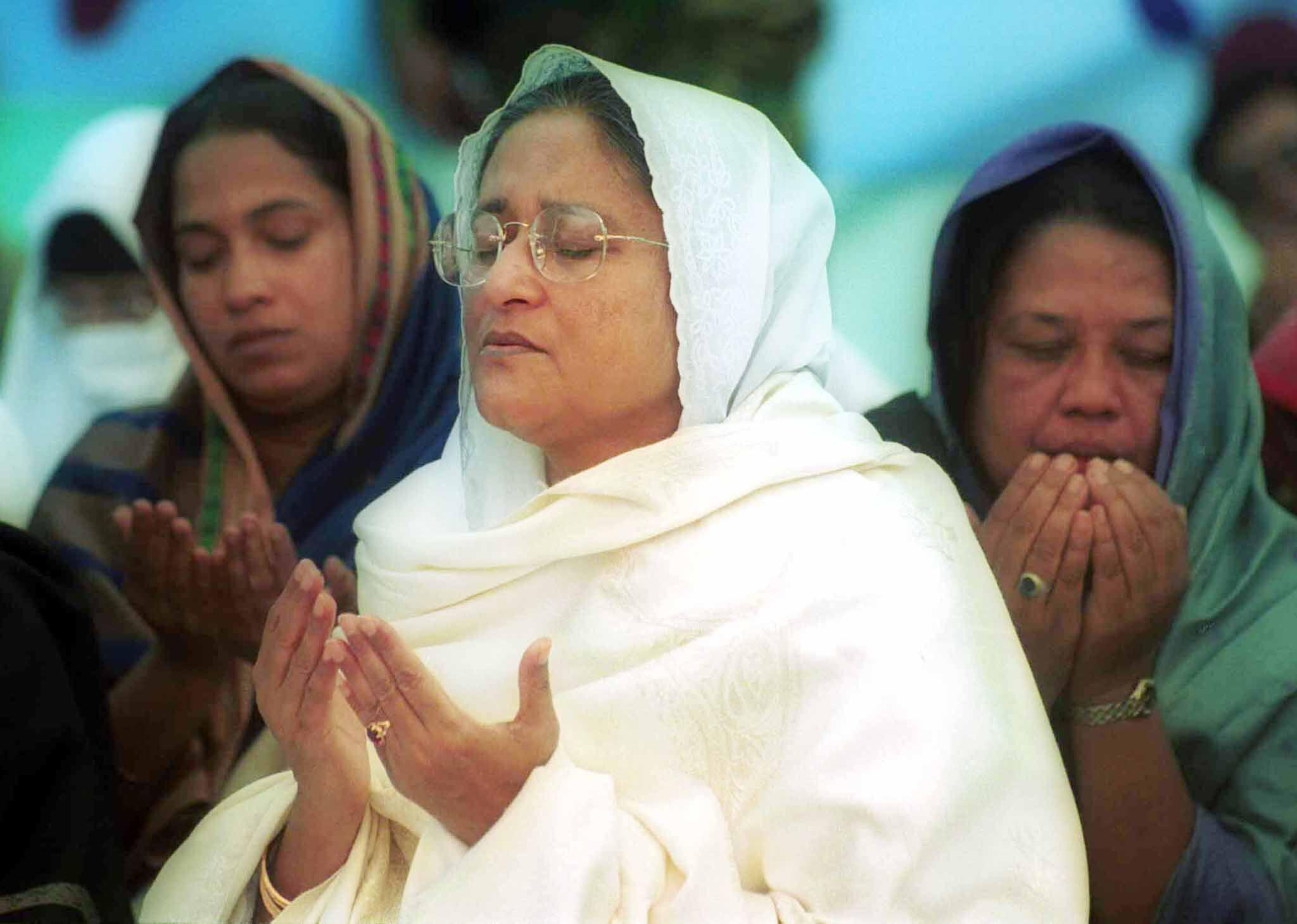Every year, hundreds of thousands of Muslims attend the Bishwa Ijtema (Global Congregation), which occurs in Tongi, near Dhaka, the capital of Bangladesh. Likely the largest annual gathering of Muslims in the world, the event is sponsored by the Tablighi Jamaat (Society for Religious Propagation). This movement started in the city of Mewat, British India (now in Haryana state, India), in 1926. By 2020, it was thought to be the largest association of Muslims in the world, with affiliates said to number over eighty million, spread throughout the world where there are Muslim communities. The Bishwa Ijtema near Dhaka has occurred since 1967 and has grown large enough to require the government to provision special buses, trains, and flights that pour people into the area from around the country as well as abroad.
The Tablighi Jamaat organizes congregations all over the world during the year. As a movement, it claims to be apolitical and is known for being focused on members’ personal conduct and their commitment to travel near and far to propagate the religious message. Men who are committed to the movement are attuned to what they regard as the habitus of Prophet Muhammad and his companions, including bodily practices as well as social etiquette and the cultivation of qualities such as generosity and avoiding anger.
Members are expected to share the message with others, including one’s immediate family, social circle, and strangers encountered during regional, national, and international group tours undertaken at regular intervals in life. Grand social gatherings such as the Bishwa Ijtema are places to make connections for smaller-scale expeditions that are constantly underway through connected communities of Tabligh followers all around the world.
The Tablighi Jamaat is focused on proselytizing to other Sunni Muslims. While some internal stories mention conversions of non-Muslims to Islam, these are presented as accidental benefits. In its origins story, the movement is said to have been motivated by alarm over the degradation in Muslims’ adherence to religious norms in life under modern conditions. At the time the movement came to the fore in the early decades of the twentieth century, Islamic reform was a transnational rallying cry among Muslims, with particular attention to anticolonial struggles, codification of law, opposition to Christian and other missionizing, and the challenge of responding to European ideas.
Amid a highly energized field, the Tablighi Jamaat took the distinctive position that true Muslimness can be revitalized only by concentrating on individual behavior rather than large-scale social or political reconstitution. This was to be accomplished in a distinctive way, focused on correlating between the past and future. Tablighi Jamaat proponents’ thematization of time is relevant for understanding the temporal perspective of the spectrum of modern Muslim movements known under the umbrella term salafi, meaning those devoted to the practice of the pious ancestors (al-aslaf).



